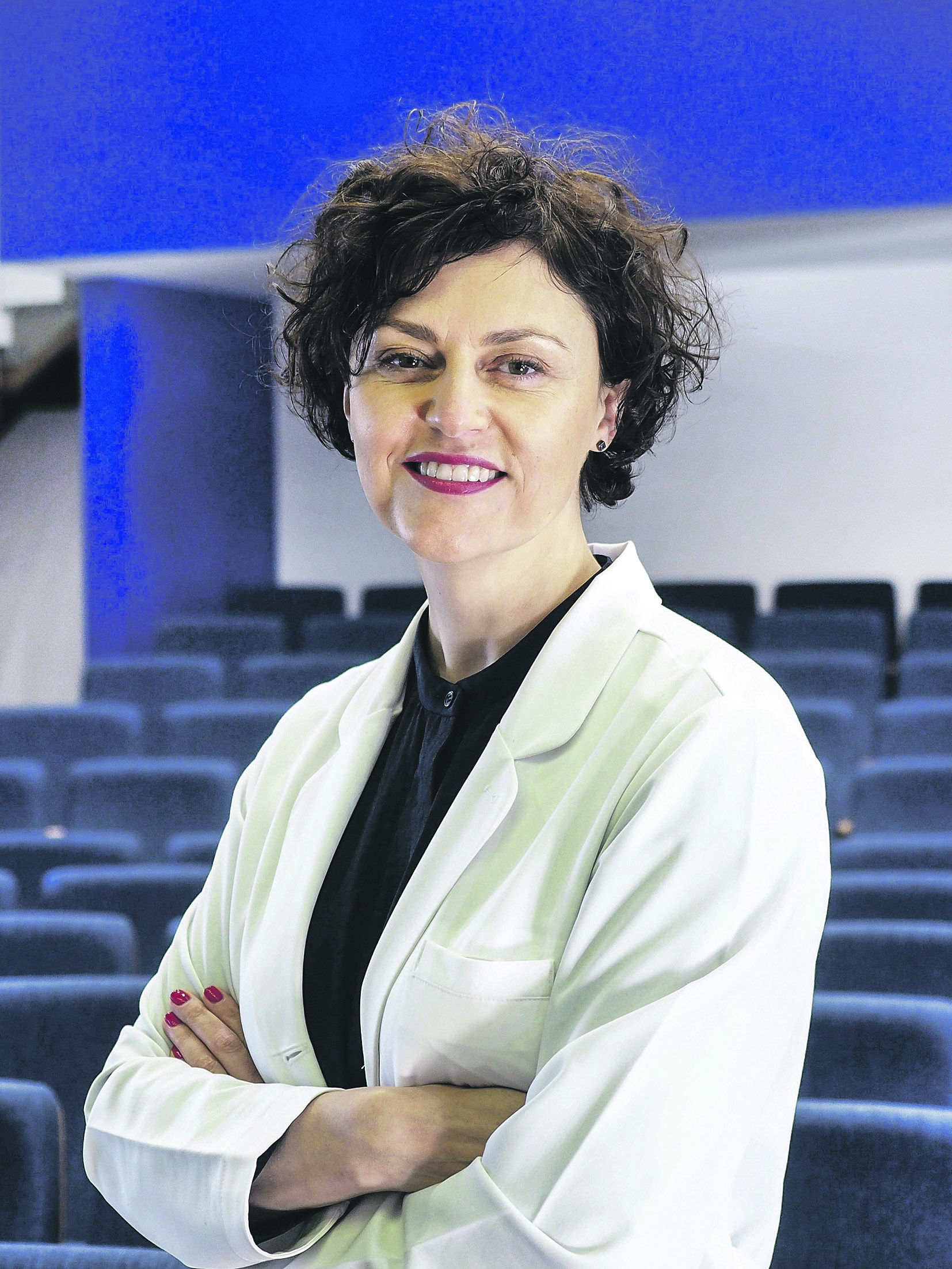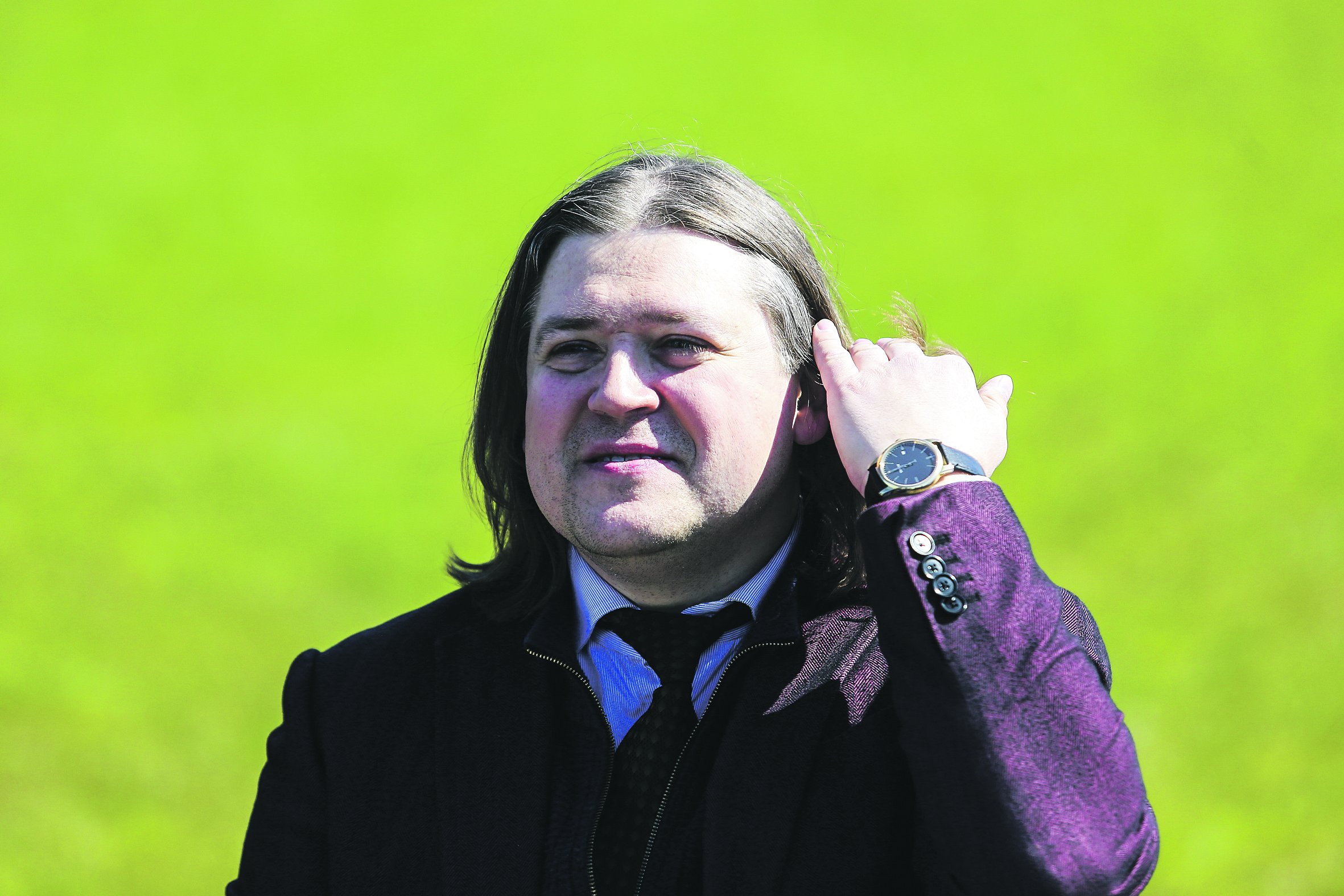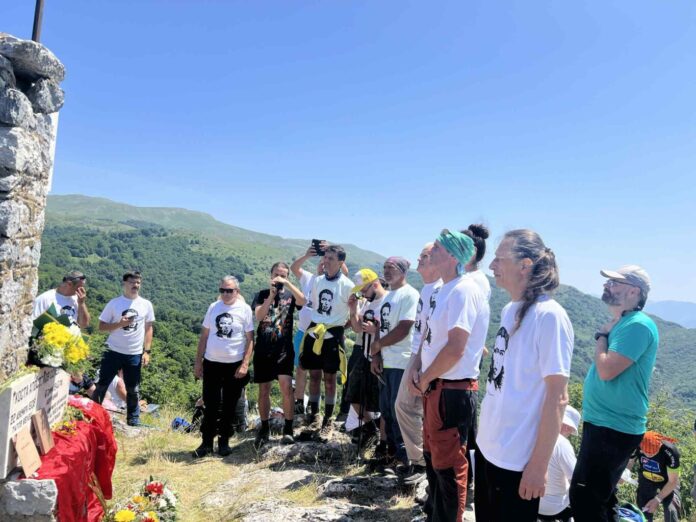This is why these diseases are so insidious

The usual stages pass
Patients who hear a diagnosis of oncological disease usually experience great shock.
« This is a completely natural first reaction. It is scary to find out about the disease, and a variety of scenarios start in mind. The shock goes through all the usual stages: denial, anger, guilty search, self -loathing, » says Justas Kuliavas, a National Cancer Center (NVC).
It is important to thoroughly examine each patient, assess their condition, stage of the disease, and prescribe individual treatment tactics for cancer treatment.
According to the doctor, NVC doctors are accompanied by the patient throughout the treatment of treatment: a psychologist’s consultation, advised on how to refer to obsessive thoughts, to deal with stress, and to be determined for treatment.
Overwhelms the body quietly
Pancreatic and liver cancer have one similarity – they are both called silent, ie no specific symptoms, cancer is unnoticed, and when detected, it is usually significantly spread.
Mr Kuliav says that pancreatic cancer is extremely aggressive – about 80 percent. The disease is diagnosed with advanced stages. With this stage, only a few percent survive for five years and the average survival is a year. Liver cancer statistics are better – after the diagnosis of advanced cancer, 3 % survives for five years. patients, and early stage survival is about 70 percent.
The aggressiveness of pancreatic cancer is also emphasized by the head of the NVC Clinical Research Division, the oncologist chemotherapist dr. Edita Baltruškevičienė: « Of all gastrointestinal oncological diseases, pancreatic cancer is third – after colon and stomach cancer. When evaluating mortality statistics, pancreatic cancer is ruthless.
According to doctors, pancreatic cancer is more common in men aged 50 and over. However, younger patients are also treated.
Edita Baltruškevičienė / Photo by Personal Archive
Can turn yellow overnight
Pancreatic and liver cancer is a secret course, so perhaps the only reliable way to detect the disease, according to surgeon J. Kuliva, is regular diagnosis. Not only conventional blood or urine tests, visits to a cardiologist or urologist are important. Other organs should also be kept in mind: stomach, colon, pancreas, liver – examination. This is then conducted by echoscopy, magnetic resonance imaging (MRI) or computed tomography.
As with many oncological diseases, early symptoms of pancreatic or liver cancer are not specific, so self -discipline and responsibility for your health is paramount.
« We should not drop by hand if we begin to feel unusual: there is a feeling of indigestion, discomfort, back pain, and in the event of an advanced disease, weights may fall, fatigue, fatigue, burning pain in the upper abdomen, loss of appetite, » the surgeon warns.
The doctor also mentions the jaundice – it is characterized by pancreatic cancer. As J. Kuliav explains, usually bile from the liver through the pancreas of the gutters drains into the duodenum, and when the tumor appears in the pancreas, even a small 1.5 cm derivative is sufficient to pinch the bile duct.
« This process is sudden – a person can just turn yellow overnight, » the doctor points out, adding that jaundice may not always occur – it all depends on which part of the pancreas has.
Of all gastrointestinal oncological diseases, pancreatic cancer is third in the frequency of the disease – after colon and stomach cancer.
A thorough research awaits
When the patient heard the diagnosis of pancreatic or liver cancer, the patient should be determined to have thorough examinations. According to the physician surgeon, they need them to get the whole picture of the disease: what stage of cancer, where and how much it spreads, what his biology is.
« We are investigating not only the liver or pancreas, but also the lungs, chest, sometimes stomach. Only after all the tests are evaluated, we can apply optimal treatment, » explains J. Kuliavas.
The results of the patient’s tests are discussed by a multidimensional team. It consists of a surgeon, a chemotherapist, a radiotherapist and a radiologist. If necessary, other professionals are included.
After evaluating the patient’s condition, age, co -morbidities, oncological disease, a team of doctors decides what treatment to apply.
Operation and chemotherapy
E. Baltruškevičienė says that due to the nature of the disease and aggressiveness, pancreatic cancer is always treated in a complex way, ie, even at an early stage, when the tumor is small, without surgical treatment, additional systemic medical treatment, ie preventive chemotherapy, is always used.
« Aggressiveness is characterized by the fact that individual cancer cells can circulate in the blood, travel to other organs and form metastases. Studies have shown that such preventive chemotherapy significantly reduces the regeneration of the disease and prolongs patients’ survival, » explains E. Baltruškevičienė.
Mr Kuliav adds that the main treatment of both pancreas and liver cancer is surgical, ie surgery: « After the diagnosis of the primary stage disease, the chances of recovering are quite good. Our goal is to determine the disease as early as possible to achieve the best treatment results. »
According to the chemotherapist, when the tumor is large, associated with the nerves and blood vessels nearby, the patient is referred to preoperative chemotherapy to reduce the tumor to surgery. This systemic treatment lasts 3 or 6 months (arriving is intravenous every two weeks), and control tests are performed during treatment to find out if the tumor has decreased sufficiently.
Another option for chemotherapy is when surgical treatment is impossible because the tumor is very large or metastases are detected.
« In the case of a spread disease, medication is used for a lifetime to stop the spread of the disease, reduce tumor derivatives and their symptoms. Several types of medication are distinguished: chemotherapy, biological therapy (when specific tumor cells are affected by targets, genes affecting the disease) and immunotherapy the immune system).
It adds: pancreatic cancer is also exceptional in that the tumor is rich in connective tissue, low blood vessels, making it harder to enter the tumor cells.
« As a result, liposomal forms of the drug are often used to treat pancreatic cancer, where the drug molecules are involved in special blisters, which make it easier for the drug to enter the tumor cells, » explains the chemotherapist.
Justas Kuliavas / Photo by Personal Archive
The most common gene study
In telling about liver cancer, E. Baltruškevičienė emphasizes that it is two types: originated in the liver cells (hepatocyllular carcinoma HCC) or from the bile duct (cholangiocarcinoma). HCC liver cancer is the most common and usually develops after cirrhosis of the liver or hepatitis B, C.
« Once the hepatochelin carcinoma is detected, local treatment methods are always intended to be applied: dismantling, deleting the tumor by heat, cold or other waves, embolized – or inserting the tumor nourishing blood vessels or injecting chemopreparans. Chemotherapy is insensitive, and innovative targeted therapy and immunotherapy are used for treatment, ”explains the specialist.
We are examining not only the liver or pancreas, but also the lungs, chest, sometimes stomach. Only by evaluating all the tests will we be able to apply optimal treatment.
According to her, cholangiocarcinoma is very aggressive, as is pancreatic cancer. In this case, the patient is rarely operated on because the tumors are usually large, which is why chemotherapy is usually applied, which is combined with immunotherapy (currently not reimbursed in Lithuania).
« In the case of cholangiocarcinoma, genetic diagnostics are very important when developing gene changes that could be affected by innovative drugs. It is important to mention that the study of genes found in February’s most common tumors in Lithuania has been compensated.
Time before surgery
Surgeon J. Kuliavas has performed about 50 pancreatic cancer surgery. The complex pancreatic surgery can last for 3-6 hours. The liver, depending on the complexity, the patient’s weight, the tumor site, from 40 minutes to 4-5 hours.
« We are also operating on stage third cancer, » explains J. Kuliavas.
Open surgery is usually subject to pancreatic cancer. Another way is minimally invasive surgery (laparoscopy). According to the physician surgeon, this method is more suitable for treating liver cancer. Usually a team of doctors chooses the method best for the patient according to his or her condition.
J. Kuliavas emphasizes the time before surgery: « This period is important and the patient should work a little, ie improve his or her condition. It is important to consult a family physician and adjust the co -morbidities, increase physical activity, quit smoking, less calorie products, etc.
Reduces the risk of cancer
Both NVC doctors claim that the most common risk factors for pancreatic cancer are smoking, alcohol, high -calorie and fatty food consumption, obesity, lack of physical activity. Particularly dangerous is the inflammation of the pancreas – pancreatitis, which, according to dr. E. Baltruškevičienė, people who are alcoholic are often ill. Chronic pancreatitis is one of the risk factors for pancreatic cancer.
« If a person has inflammation of the pancreas, this organ should be monitored more often, more often due to liver cancer – if a person has liver cirrhosis, viral hepatitis B or C, should be more careful, more careful of their liver and diagnosis of their diseases, » advises J. Kuliav.
Sources indicate that the likelihood of genetically transmitting the risk of developing these types of cancer is 5 to 10 %. However, the most effective prevention of these diseases is the right lifestyle and nutrition.
« You should abandon harmful habits, increase physical activity, organize your diet to rich in vegetables, fiber foods – all this reduces the risk of cancer. So the first step is prevention and the second is diagnostic, A family doctor who will prescribe the tests and will send it to other specialists if necessary.
According to the interlocutor, although pancreatic cancer is being studied, medicines are being sought, there are no ones that have been changed. Therefore, clinical trials are crucial, as they provide an innovative treatment for a patient with aggressive cancer that can be successful. In addition, patients involved in clinical trials are constantly monitored and more frequent studies.
« The most important thing is prevention, diagnostics, and if the diagnosis of oncological disease is heard, you should trust doctors, listen to their recommendations, not be afraid to ask, communicate and look back at yourself. Although pancreatic and liver cancer are aggressive diseases, new opportunities are emerging, » observes E. Baltruškevičienė.








